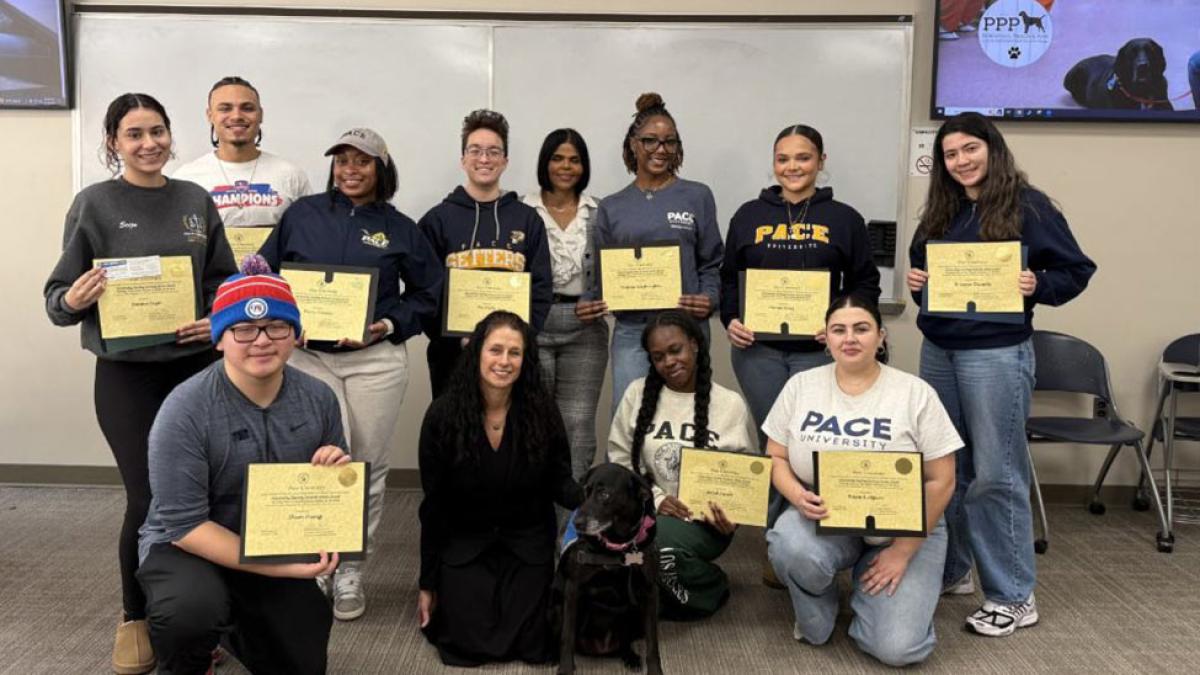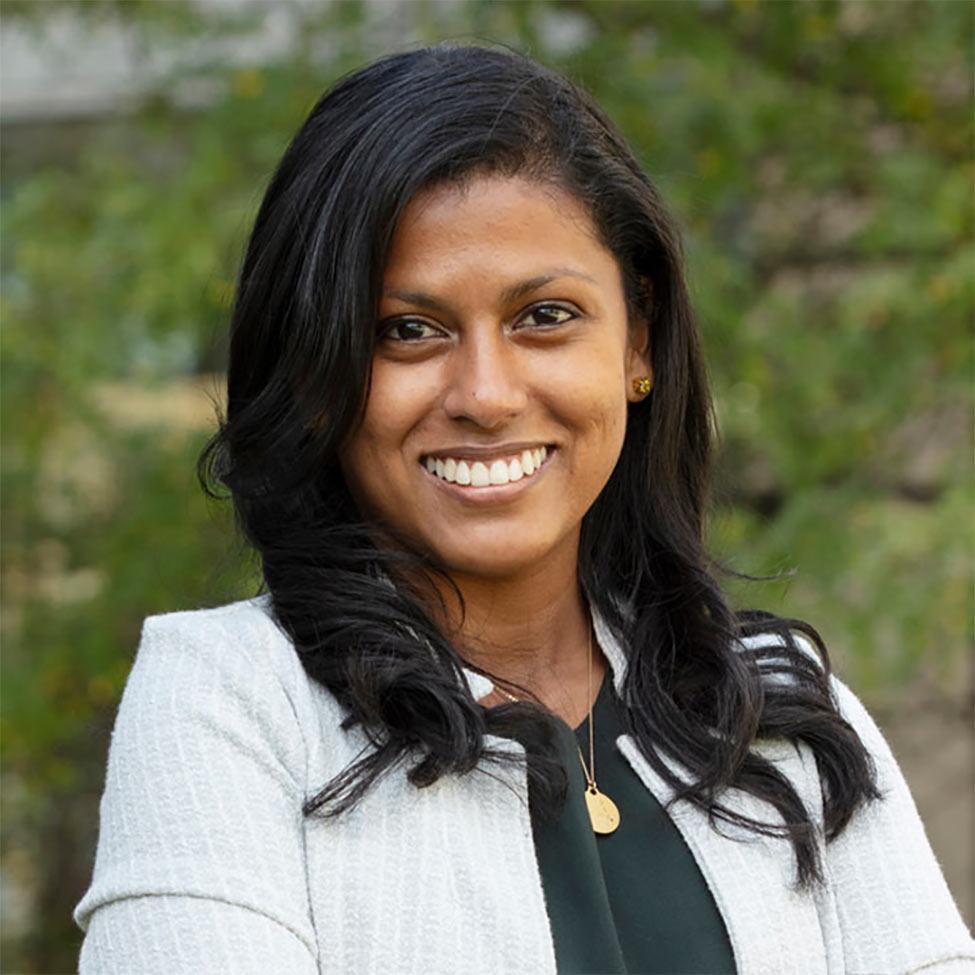
In Memoriam: Kristina Maria Gjerde, 2024 Laureate of the Elisabeth Haub Award for Environmental Law at Diplomacy
Elisabeth Haub School of Law deeply mourns the death of Kristina Maria Gjerde, who passed away from pancreatic cancer on December 26, 2025.
Kristina was a 2024 Laureate of the Elisabeth Haub Award for Environmental Law and Diplomacy, presented jointly to her and Singapore Ambassador Rena Lee in recognition of their leadership in advancing the United Nations Agreement on Biodiversity Beyond National Jurisdiction (BBNJ)—a landmark achievement in the protection of marine biodiversity on the high seas.
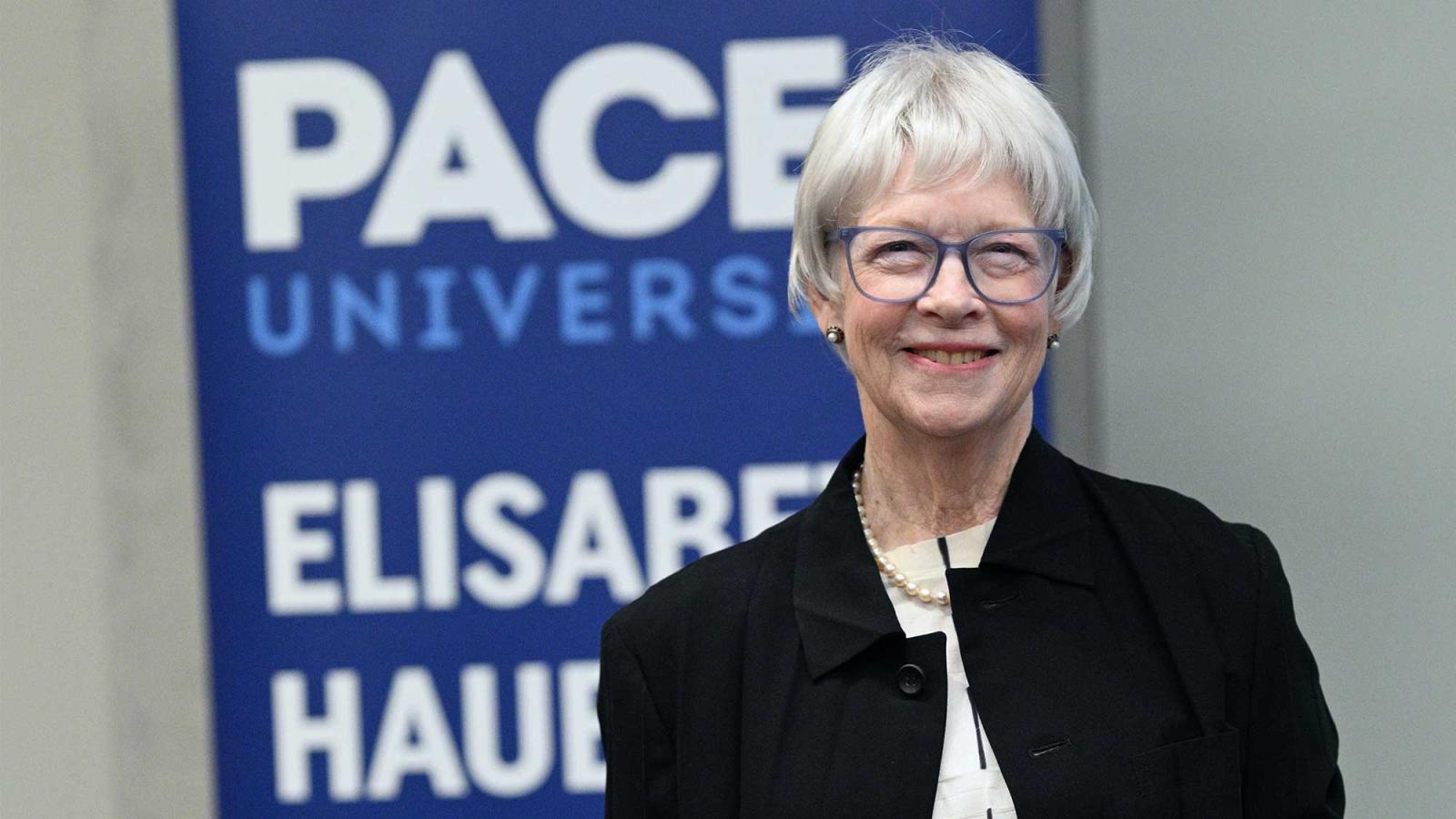
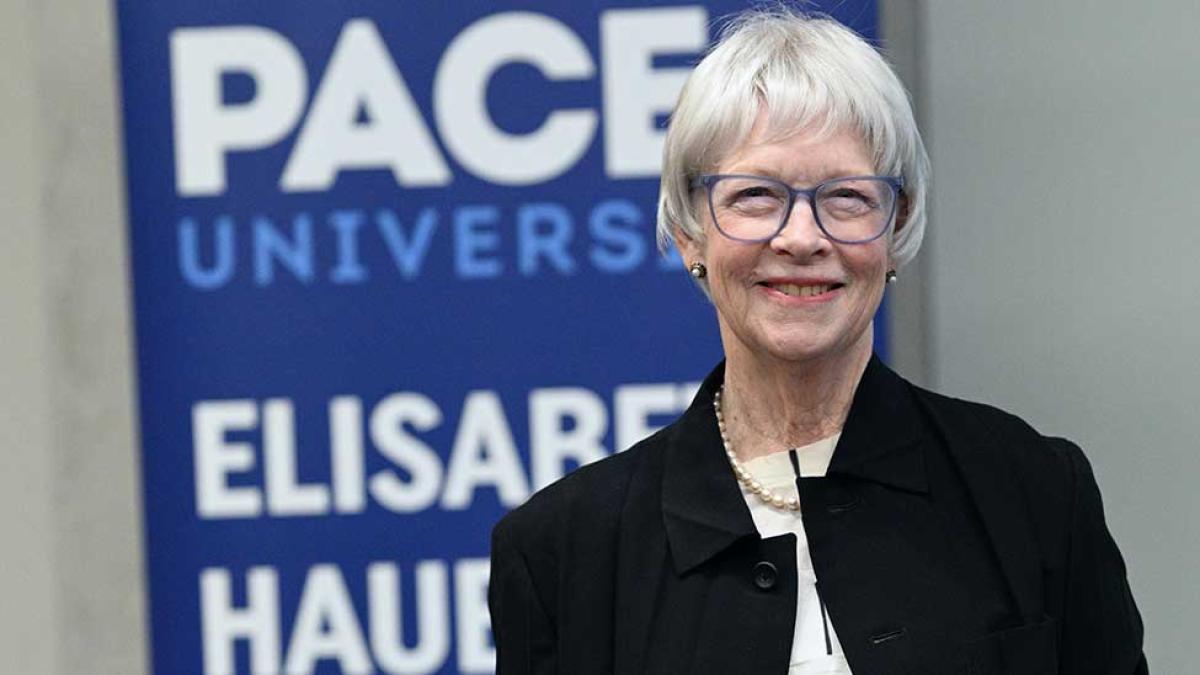
Elisabeth Haub School of Law deeply mourns the death of Kristina Maria Gjerde, who passed away from pancreatic cancer on December 26, 2025.
Kristina was a 2024 Laureate of the Elisabeth Haub Award for Environmental Law and Diplomacy, presented jointly to her and Singapore Ambassador Rena Lee in recognition of their leadership in advancing the United Nations Agreement on Biodiversity Beyond National Jurisdiction (BBNJ)—a landmark achievement in the protection of marine biodiversity on the high seas.
A true champion for the ocean, Kristina dedicated nearly 40 years to the development of public international law governing the marine environment. Her expertise encompassed ocean governance, shipping, fishing, and deep seabed mining, driven by a passion for advancing the role of science and scientists to improve marine biodiversity conservation and sustainable use. Kristina’s visionary work through IUCN as the Senior High Seas Advisor in conceptualizing the need for and incorporating innovative conservation measures for the BBNJ Agreement in the early 2000s. She also led the establishment of several key initiatives, including the Deep Ocean Stewardship Initiative, the Global Ocean Biodiversity Initiative, the Sargasso Sea Project, and the High Seas Alliance. She also served on the Executive Planning Group of the UN Decade of Ocean Science. In addition to Kristina’s role with IUCN, she was an adjunct professor at the Middlebury Institute of International Studies, an Honorary Professor at the University of Edinburgh, a Pew Marine Fellow and formerly a Woods Hole Oceanographic Institution Marine Policy Center Fellow. Kristina sat on the Schmidt Ocean Institute Advisory Board and has co-authored over 200 publications, collaborating with leading ocean scientists and legal scholars with a focus on marine biodiversity conservation and sustainable use in ABNJ. Her efforts have significantly contributed to the progressive development of marine law and policy, exemplified by her vital role in catalyzing early support for the BBNJ Agreement.
Her commitment for uplifting early career scholars has enabled new voices from around the world to shape the process. Kristina is a multi-award recipient, including the 2023 IUCN World Commission on Protected Area’s Fred Packard Award for her efforts to secure protections in international law for the high seas and the 2024 Elisabeth Haub Award for Environmental Law and Diplomacy, the world’s most prestigious award in the field of environmental law.
To continue her long-term commitment to fostering the next generation of ocean stewards, Kristina has established the Ocean Stewardship Award through Synchronicity Earth, USA. Her love of the ocean and her legacy will live on through the BBNJ Agreement, which will enter into force on 17 January 2026.
Elisabeth Haub School of Law at Pace University Professor Achinthi Vithanage Recognized with 2025 Ottinger Award for Faculty Achievement
The Elisabeth Haub School of Law at Pace University is proud to announce that the 2025 Ottinger Award for Faculty Achievement has been awarded to Achinthi Vithanage, Professor of Law for Designated Service in Environmental Law & Executive Director of Environmental Law Programs. The Richard Ottinger Faculty Achievement Award is awarded annually by the Faculty Development Committee, in consultation with the Dean, in recognition of a full-time professor’s outstanding service to the law school, the legal profession, or both. The award generally is based on the faculty member’s outstanding service during the previous academic year.
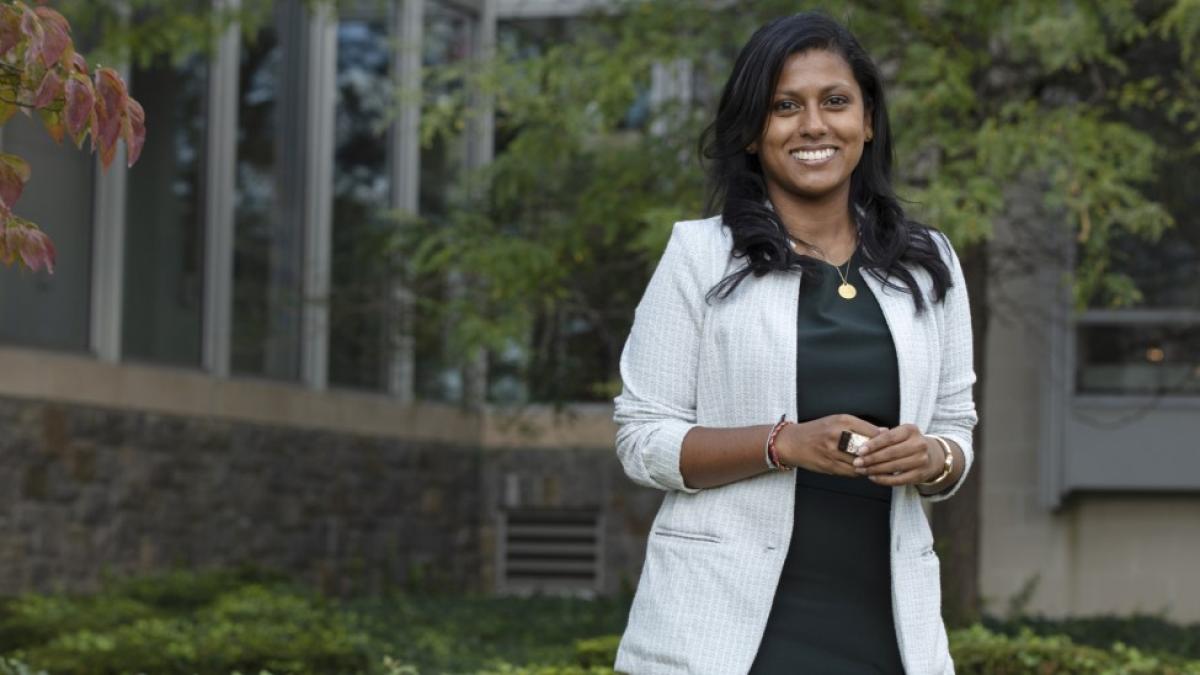

The Elisabeth Haub School of Law at Pace University is proud to announce that the 2025 Ottinger Award for Faculty Achievement has been awarded to Achinthi Vithanage, Professor of Law for Designated Service in Environmental Law & Executive Director of Environmental Law Programs. The Richard Ottinger Faculty Achievement Award is awarded annually by the Faculty Development Committee, in consultation with the Dean, in recognition of a full-time professor’s outstanding service to the law school, the legal profession, or both. The award generally is based on the faculty member’s outstanding service during the previous academic year.
Professor Katrina Fischer Kuh, chair of the Faculty Development Committee, remarked: “Achinthi Vithanage is a recognized and respected leader in the field of environmental law, both nationally and internationally. Her work with the IUCN and the ABA Section on Energy & Environmental Law (SEER) has been inspirational and effective and through this she continuously strives to identify and create substantive opportunities for students to gain meaningful experience. Achinthi is a role model not just to our students and faculty at Pace Haub Law, but more broadly throughout the field and academic community. We are proud to honor her and her service with this recognition in the form of the Ottinger Award for Faculty Achievement.”
For Harrison Bench ’27, a student in the JD/MEM dual degree program with Yale School of the Environment, Professor Vithanage’s guidance has been transformative: “Professor Vithanage is not only an ardent and knowledgeable instructor, but also a dedicated mentor to and advocate for her students. She helped me secure two separate legal internships, introduced me to ABA SEER’s Environmental Law Society Network, and allowed me to take her Advanced International Environmental Law seminar so that I could participate in the upcoming IUCN World Conservation Congress. Her commitment to networking, real-world opportunities, and experiential learning makes Professor Vithanage an invaluable member of the Pace Haub Law faculty and Environmental Law Program.” Harrison is a student co-chair of ABA SEER Environmental Law Society Network and a Symposium Editor for Pace Environmental Law Review.
Professor Vithanage is recognized as one of the country’s leading environmental and energy lawyers with listings in LawDragon’s inaugural Environmental and Energy Lawyers list in 2021 and in LawDragon’s 500 Leading Environmental Lawyers Guides for 2023, 2024, and 2025. Within the American Bar Association’s Section on Environment Energy & Resources (SEER) she serves on its Governing Council (2023–2025), heads the Law Student Transition Task Force and is a member of the Sustainability in Legal Education Task Force, is the founding Co-Chair of the Environmental Law Society Network, and a former Co-Chair of the International Law Committee. She serves on the Secretariat to the International Union for Conservation of Nature’s (IUCN) Academy of Environmental Law, co-leads the Climate Change Collaborative Research Network for the Law & Society Association, is a member of the World Commission on Environmental Law, and an originating member of the International Association of Energy Law, a global network of early career energy law professors. Most recently, she attended COP30 and COP28 as the ABA Delegate and serves on several Boards, including the Editorial Advisory Board for the Environmental Law Institute’s Environmental Forum publication, the Editorial Board for Yearbook of International Environmental Law, the Board of Directors of the Federated Conservationists of Westchester County, and the Sustainable Business Law Hub’s Advisory Board.
Prior to joining Pace Haub Law, Professor Vithanage was a Visiting Associate Professor of Law at the George Washington University Law School (GW Law). Professor Vithanage was born in Sri Lanka, lived in the United Arab Emirates, practiced as an attorney in the state of New South Wales (NSW) in Australia, and undertook tertiary studies in Australia, Japan, China, Spain, and the United States, providing her a unique international perspective. She also worked at the Energy & Water Ombudsman of NSW and practiced in the corporate, commercial, and property legal sectors in Sydney, Australia.
The Ottinger Award for Faculty Achievement is named in honor of Richard L. Ottinger, who served in the United States House of Representatives for eight terms, from 1965 to 1971 and from 1975 to 1985. Ottinger was Dean of the Law School from 1994 to 1999 and is the founder of the Pace Energy Project, now known as the Pace Energy and Climate Center. Learn more about the Richard Ottinger Faculty Achievement Award and other faculty designations and awards.
Skyler Pozo ’26: Gaining Her Edge Through Trial Advocacy
As a child, Skyler Pozo ’26 was captivated by courtroom television, often watching alongside her mother. That early fascination stayed with her and eventually evolved into a serious interest in the law and advocacy. “Once I got to college, I joined the Mock Trial Team at Scranton,” Skyler shared. “I ultimately became captain of the team, won awards, and was the first person in Scranton history to receive an award at the Opening Round Championships.”
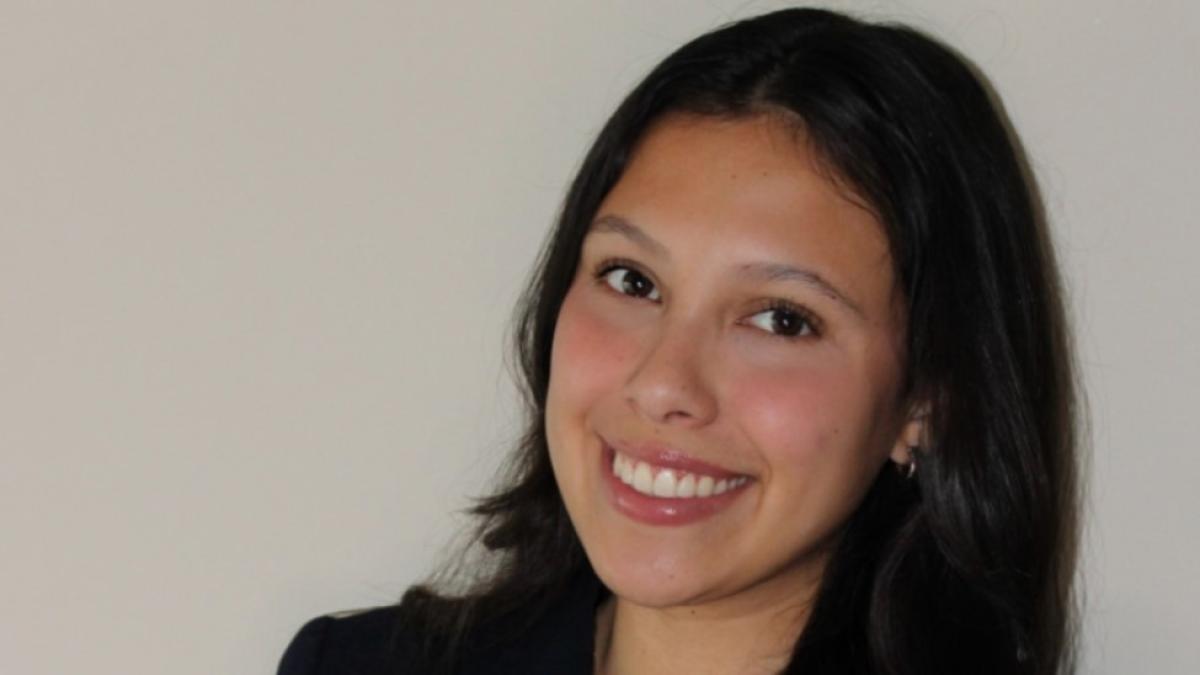
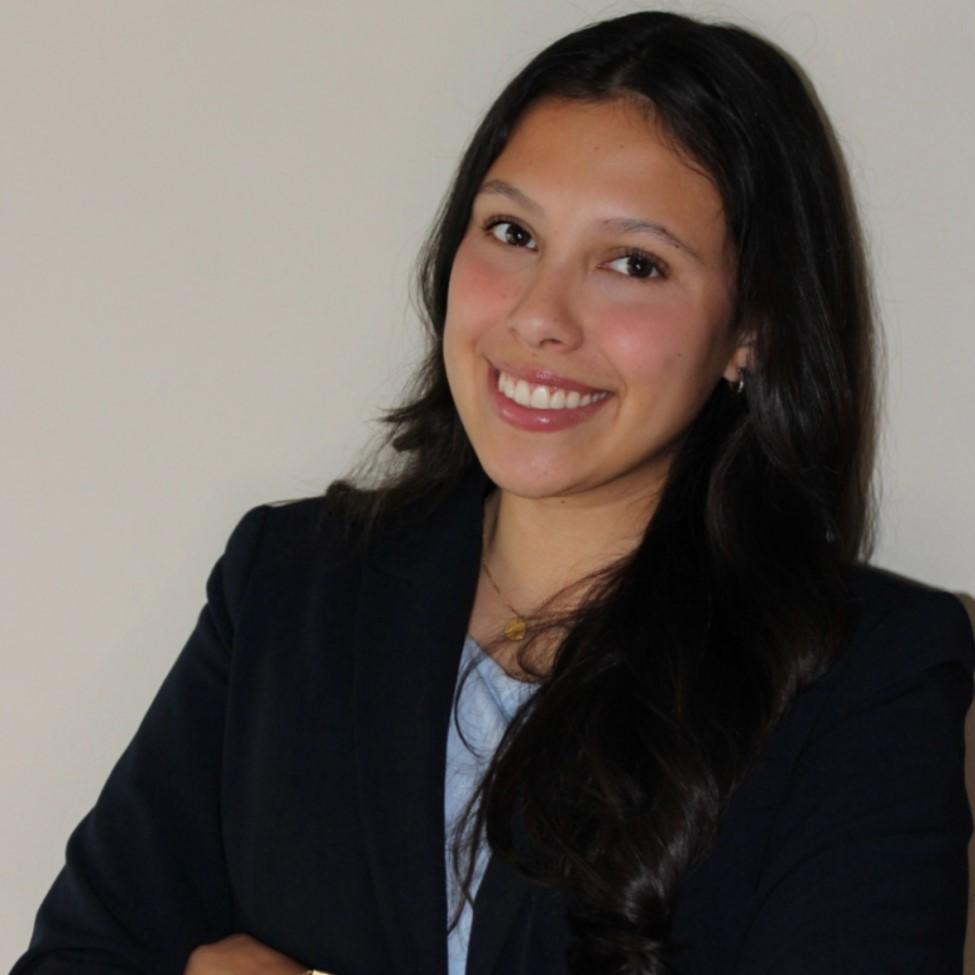
As a child, Skyler Pozo ’26 was captivated by courtroom television, often watching alongside her mother. That early fascination stayed with her and eventually evolved into a serious interest in the law and advocacy. “Once I got to college, I joined the Mock Trial Team at Scranton,” Skyler shared. “I ultimately became captain of the team, won awards, and was the first person in Scranton history to receive an award at the Opening Round Championships.”
Just two months after graduating from the University of Scranton, Skyler began her legal education at the Elisabeth Haub School of Law at Pace University. From the outset, she found a supportive and encouraging community. “Since day one, the Pace Haub Law community has been extremely supportive,” she said. “I distinctly remember the bailiff in my 1L moot oral argument round coming up to me and telling me what an asset I could be to the Trial Advocacy Program. That moment was life-changing. I not only gained a lifelong friend, but also found my place in the Trial Advocacy Program, an experience that will stay with me forever.” Through her involvement in the program, Skyler gained invaluable hands-on experience, built lasting relationships, and expanded her professional network. Skyler also serves as Chair Executive Director of Advocacy and Teacher's Assistant for Trial Advocacy.
Skyler’s time at Pace Haub Law has been shaped by extensive experiential learning opportunities. “The opportunities to gain a variety of experience are endless,” she noted. During her 1L summer, she interned with the Passaic County Prosecutor’s Office in New Jersey, working in the Fatal Investigations Unit. Her 2L summer took her to Harris Keenan & Goldfarb in New York City, followed by a Family Court Legal Program externship during her 3L fall semester, where she traveled to Westchester County courthouses and interned with the Pace Women’s Justice Center.
My goal has always been to be in court, and I am eternally grateful for Pace Haub Law and the Trial Advocacy Program for helping me reach this milestone.
—Skyler Pozo '26
After graduation, Skyler will return to Harris Keenan & Goldfarb as an associate (pending admission), achieving her long-standing goal of working in the courtroom. “My goal has always been to be in court, and I am eternally grateful for Pace Haub Law and the Trial Advocacy Program for helping me reach this milestone,” she said.
Reflecting on her journey, Skyler encourages current and future law students to stay grounded in their purpose. “Always remember what led you to this path in the first place,” she advised. “Law school is incredibly difficult, but remember that you are here because you deserve it. Take advantage of all the practical experiences Pace Haub Law has to offer, and of course, join the Trial Advocacy Program.”
Build Your Cybersecurity Program In Your Firm Or Organization
Reuters leads the week with an op-ed from Pace Haub Law Professor John Bandler on how organizations can build stronger cybersecurity programs amid escalating digital threats. Professor Bandler outlines practical steps to protect against cybercrime and better manage information systems.
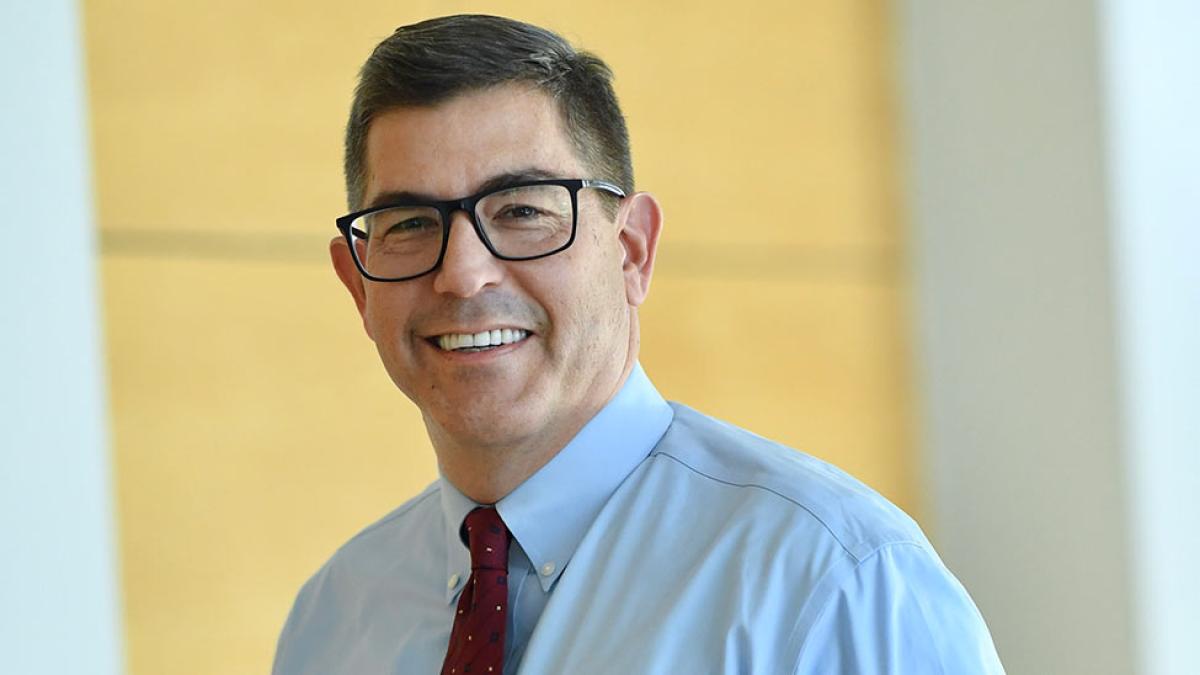
Why Fintech Firm Bilt Is Funding Its Own Original Series 'Roomies'
In the Los Angeles Times, Lubin Professor Randi Priluck weighs in on fintech firm Bilt’s decision to fund its own original streaming series, Roomies. Professor Priluck questions whether the strategy effectively builds brand awareness, noting that students in her social media and mobile marketing class were familiar with either the show or the company—but rarely both. “It’s never a good idea to make your customer do all the work,” she said, pointing to limited branding and market confusion.
This Sex-Filled Smutty TV Series Is Taking Over the Internet. It's A Big Shift.
Dyson Professor Melvin Williams speaks to USA Today on the cultural impact of the viral television series Heated Rivalry. Professor Williams highlights how the show has sparked meaningful conversations about queerness, sexuality, and representation in professional sports, noting that the strong audience response reflects a growing openness to queer narratives—even amid broader cultural backlash.
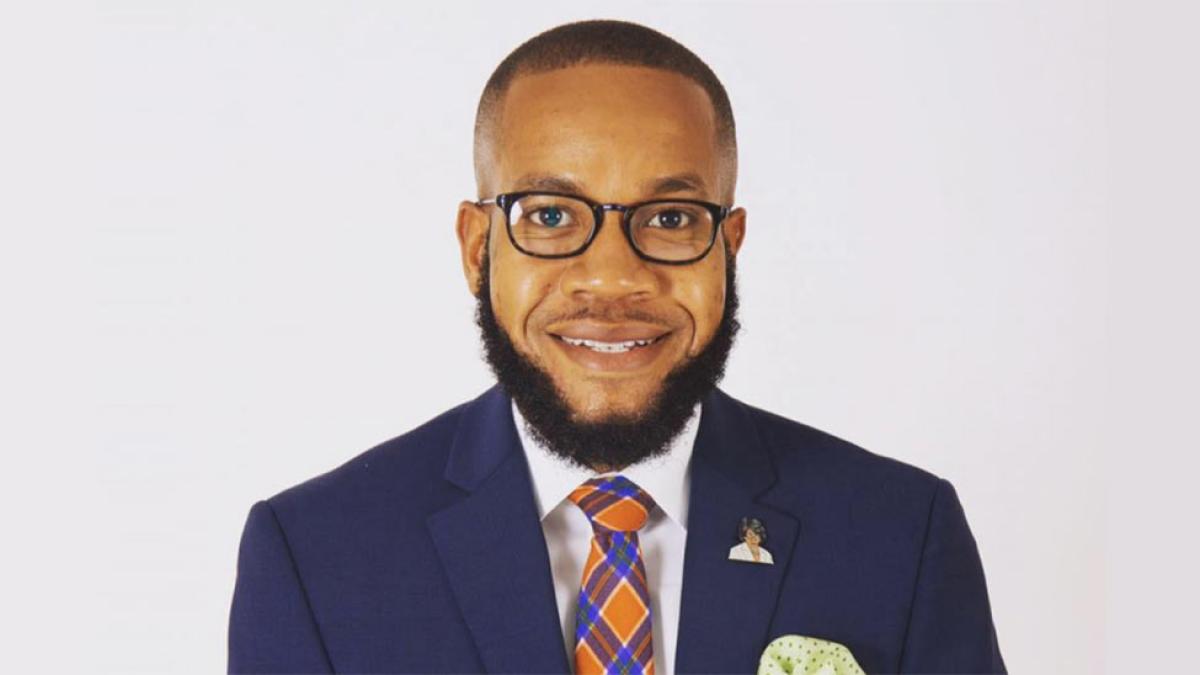
Op-Ed | Grief for New York’s Grieving Families Act
Haub Law Professor Bennett Gershman writes a piece in amNewYork examining New York’s Grieving Families Act. Professor Gershman explores the legal and policy implications of proposed changes to the state’s wrongful death statute, raising concerns about how the legislation could affect families, courts, and the broader civil justice system. Professor Gershman also writes in New York Law Journal, examining renewed calls for federal courts to reassert their supervisory power amid mounting criticism of the U.S. Department of Justice.
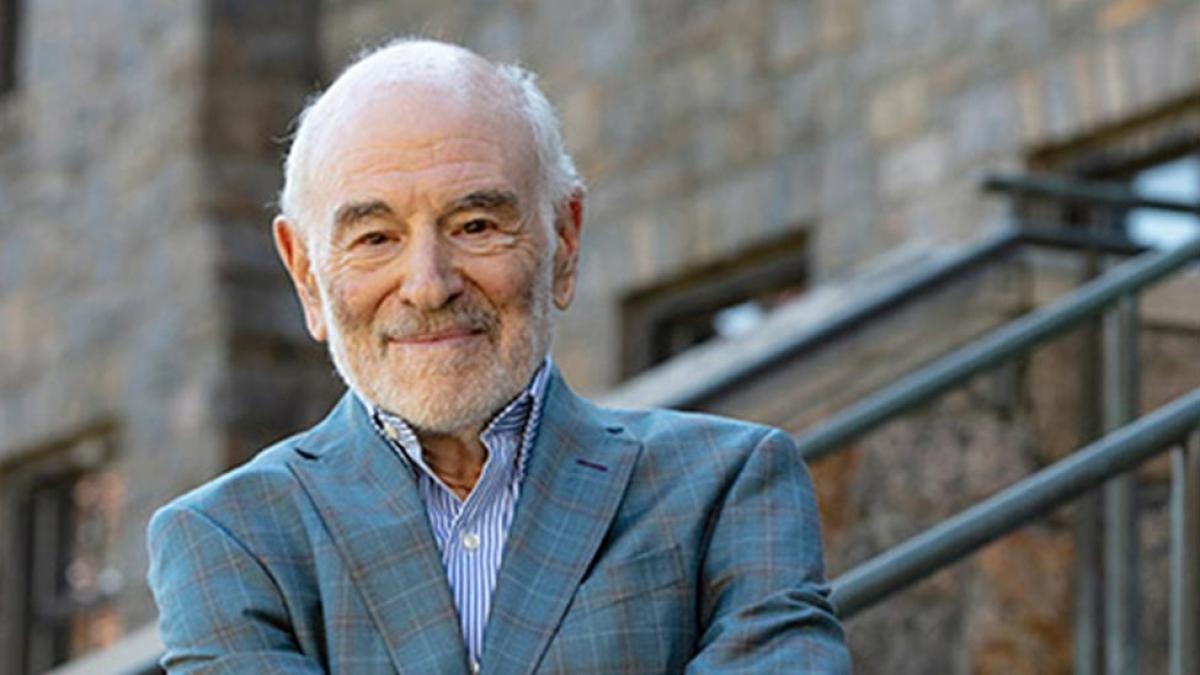
Map Shows States With Highest Immigration Court Backlogs
Haub Law Professor and Director of the Immigration Justice Clinic Amelia Wilson speaks to Newsweek about immigration court backlogs nationwide. Professor Wilson notes that while the backlog has declined significantly in 2025, the abrupt dismissal of experienced immigration judges has created new regional challenges that could slow progress.
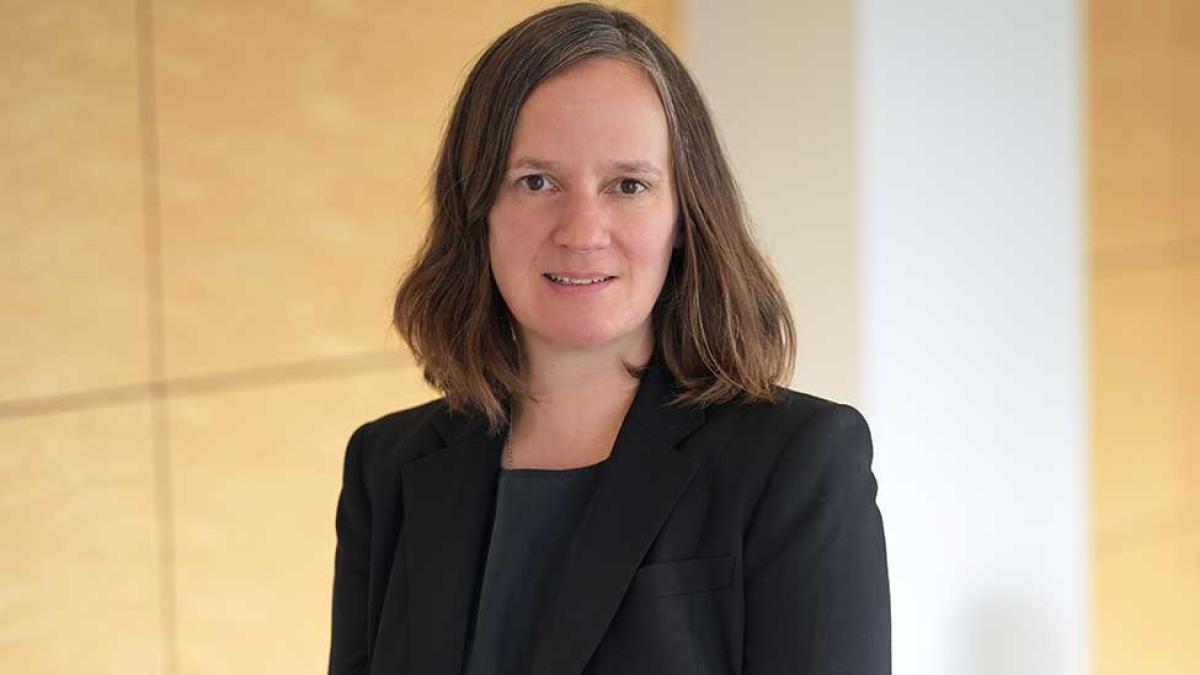
Pace University’s Students Complete The Parenting, Prison, and Pups Program Which Creates Pathways to Healing
Pace’s commitment to experiential learning and community engagement is also highlighted by News 12 Westchester, which covered the graduation ceremony for the University’s Parenting, Prison, and Pups program. Led by Dyson Criminal Justice Professor Kimberly Collica-Cox, the initiative brings together Pace students, incarcerated mothers at the Westchester County Jail, and therapy dogs to support healing, parenting skills, and emotional well-being. This semester, nine mothers and ten students graduated from the program, marking a meaningful milestone for participants and the broader community.
